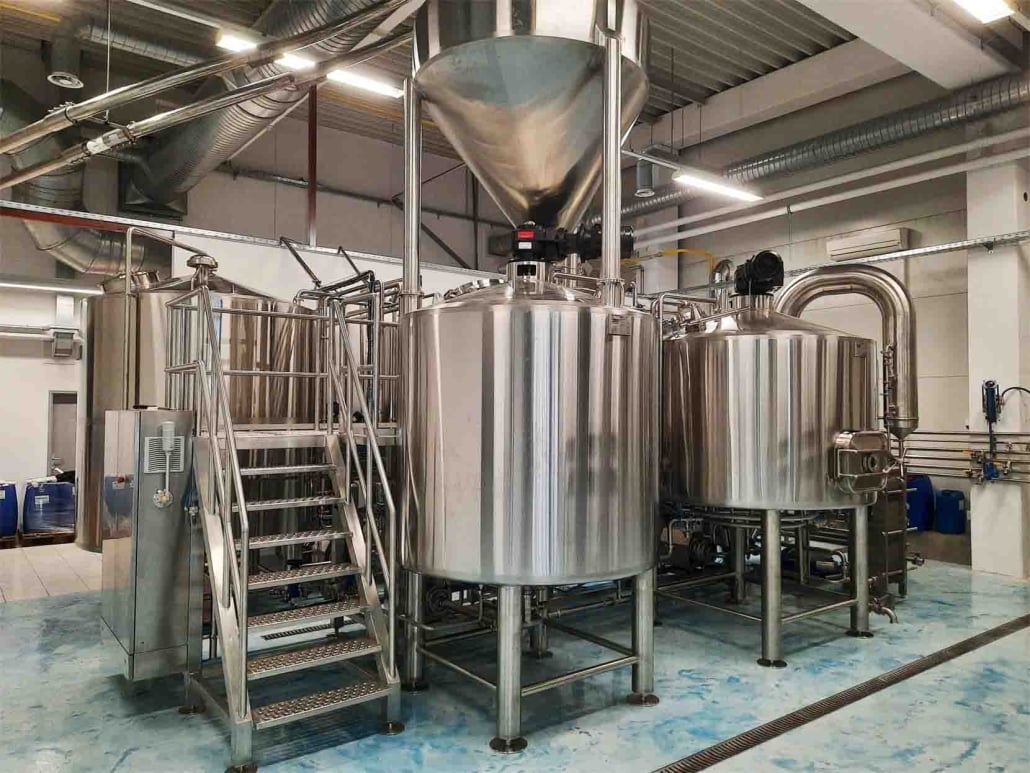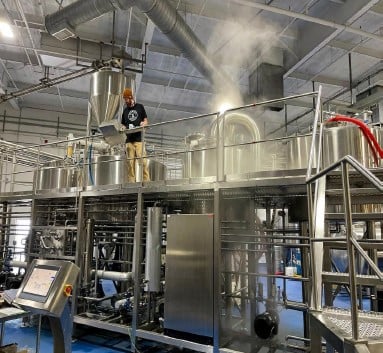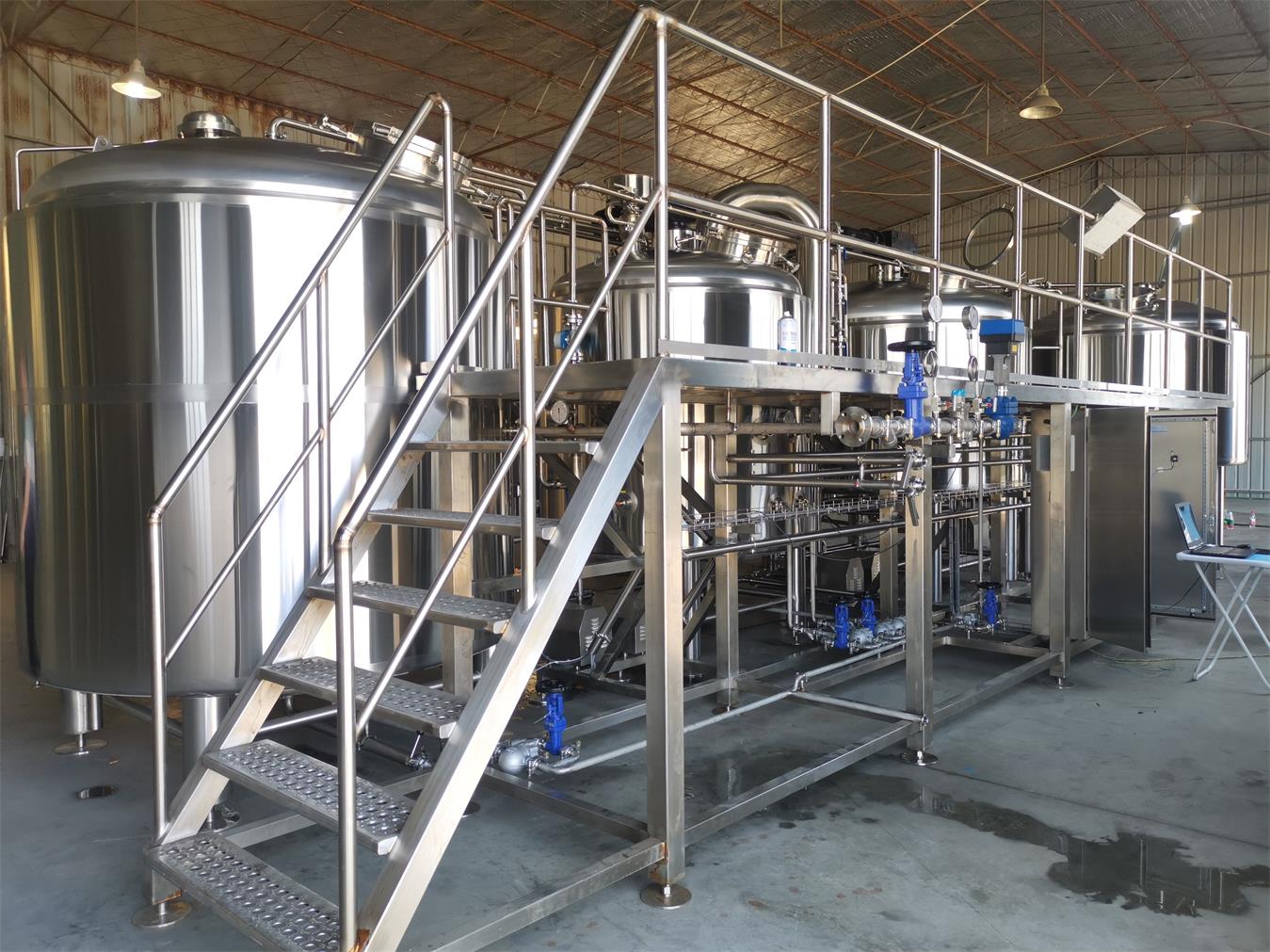Micro Brewery for Sale
Overview of Micro Breweries for Sale
Thinking about diving into the world of craft beer by purchasing a microbrewery? It’s an exciting venture, filled with potential for creativity, community engagement, and profit. This guide will walk you through everything you need to know about finding a micro brewery for sale, from understanding the equipment you’ll need, to the brewing process, layout considerations, and choosing the right supplier. Whether you’re a seasoned brewer looking to expand or a novice just starting out, this comprehensive guide is for you.

Understanding Microbrewery Equipment
Setting up a microbrewery involves a range of specialized equipment. Here’s what you’ll need:
Equipment Guide
Starting a microbrewery isn’t just about brewing beer; it involves understanding and investing in the right equipment. Here’s a detailed look at the essential components:
- Brewhouse: The heart of any brewery where the mashing, lautering, boiling, and whirlpool processes take place.
- Fermenters: Tanks where wort is fermented into beer.
- Brite Tanks: Vessels where beer is conditioned, carbonated, and stored.
- Kettles: Used for boiling the wort with hops.
- Mash Tuns: Where grains are mashed to extract sugars.
- Pumps and Piping: Essential for moving liquids throughout the brewing process.
- Cooling Systems: Important for maintaining the right fermentation temperatures.
- Cleaning Systems: Ensuring all equipment remains hygienic and ready for use.
Equipment Types
| Equipment Type | Description |
|---|---|
| Brewhouse | Central hub for mashing, boiling, and whirlpool processes. |
| Fermenters | Tanks where wort ferments into beer. |
| Brite Tanks | Used for conditioning, carbonating, and storing beer. |
| Kettles | Boiling wort with hops takes place here. |
| Mash Tuns | Extracts sugars from grains. |
| Pumps and Piping | For transferring liquids throughout the process. |
| Cooling Systems | Maintains fermentation temperatures. |
| Cleaning Systems | Ensures equipment hygiene. |
The Brewing Process
Let’s dive into the brewing process, which is both an art and a science:
- Mashing: Mixing milled grains with water to create a mash, which extracts fermentable sugars.
- Lautering: Separating the wort (liquid) from the grain husks.
- Boiling: Boiling the wort and adding hops for bitterness, flavor, and aroma.
- Fermentation: Cooling the wort and adding yeast to begin fermentation.
- Conditioning: Storing the beer in brite tanks to carbonate and mature.
- Packaging: Bottling, canning, or kegging the finished beer.
Each step requires careful attention to detail to ensure the final product meets your standards.
Microbrewery Design and Layout
When considering a microbrewery for sale, the design and layout are crucial:
Capacity, Space, Design, and Customization
| Aspect | Details |
|---|---|
| Capacity | Ranges from small batches (3-10 barrels) to larger systems (up to 30 barrels). |
| Space Requirements | Depends on capacity; plan for storage, brewing, and public areas. |
| Design | Efficient workflow from brewing to packaging. |
| Customization Options | Custom tanks, branding, and layout to suit your needs. |
Finding the Right Supplier
Choosing the right supplier for your microbrewery equipment can make or break your business. Consider the following:
Suppliers and Price Range
| Supplier | Price Range | Reputation |
|---|---|---|
| Supplier A | $50,000 – $100,000 | High quality, reliable |
| Supplier B | $75,000 – $150,000 | Excellent support |
| Supplier C | $40,000 – $90,000 | Cost-effective |
Installation, Operation, and Maintenance
Getting your microbrewery up and running involves more than just buying equipment. Here’s a breakdown:
| Aspect | Details |
|---|---|
| Installation | Professional installation recommended; budget for setup costs. |
| Operation | Training required for brewing, maintenance, and safety protocols. |
| Maintenance | Regular cleaning, inspection, and servicing to ensure longevity. |
How to Choose the Right Supplier
Choosing a supplier isn’t just about price. Here’s what you should consider:
| Consideration | Details |
|---|---|
| Quality | Ensure equipment meets industry standards. |
| Support | Look for suppliers that offer ongoing support and training. |
| Warranty | Check for comprehensive warranties on all equipment. |
| Reviews | Research customer reviews and testimonials. |
Advantages and Disadvantages of Buying a Microbrewery
Purchasing a microbrewery comes with its own set of pros and cons:
| Aspect | Advantages | Disadvantages |
|---|---|---|
| Cost | Potential for high returns on investment. | High initial investment and ongoing costs. |
| Control | Full control over recipes, quality, and production. | Requires expertise and experience in brewing. |
| Flexibility | Ability to innovate and create unique brews. | Risk of market saturation and competition. |
| Community Engagement | Strong local community support and customer loyalty. | Regulatory hurdles and licensing requirements. |
Comparing Microbrewery Sizes and Capacities
Choosing the right size for your microbrewery depends on your goals:
| Size/Capacity | Advantages | Disadvantages |
|---|---|---|
| Small (3-10 barrels) | Lower initial cost, easier to manage. | Limited production capacity. |
| Medium (10-20 barrels) | Balanced cost and capacity, good for growth. | Requires more space and investment. |
| Large (20+ barrels) | High production, potential for larger profits. | Significant investment and space requirements. |

FAQ
| Question | Answer |
|---|---|
| What is a microbrewery? | A small-scale brewery that produces limited quantities of beer. |
| How much does it cost to buy a microbrewery? | Costs can range from $50,000 to $150,000 or more, depending on size and equipment. |
| What are the benefits of owning a microbrewery? | Creative control, community engagement, and potential for profit. |
| What are the challenges? | High initial costs, regulatory requirements, and market competition. |
| How do I choose the right equipment? | Consider capacity, space, quality, and supplier reputation. |
| What licenses are required? | Varies by location; typically includes brewing, selling, and health permits. |
Conclusion
Embarking on the journey to own a microbrewery is exciting and filled with opportunities. From choosing the right equipment and layout to understanding the brewing process and optimizing your business for SEO, this guide covers all the essential aspects. Whether you’re a passionate homebrewer ready to scale up or an entrepreneur looking to enter the craft beer industry, the key to success lies in careful planning, quality equipment, and a deep understanding of your market. Cheers to your brewing success!
Additional FAQs for “Micro Brewery for Sale”
1) What due diligence should I perform before buying a micro brewery for sale?
- Review 3 years of financials (P&L, balance sheet, tax filings), production logs, distribution contracts, lease terms, equipment lists with serials, maintenance/CIP records, permits/licenses status, and any liens/UCC filings. Conduct site utilities review (power, gas/steam, drains, glycol, ventilation).
2) How do I value a microbrewery acquisition?
- Common approaches: SDE/EBITDA multiple (often 2.5–4.5x for small breweries with positive cash flow), asset-based valuation (orderly liquidation value of equipment + inventory), and revenue multiple (0.6–1.2x taproom-heavy). Adjust for lease quality, brand strength, and growth runway.
3) What hidden costs can surprise buyers?
- Utility upgrades, wastewater surcharges/pretreatment, CO2 monitoring and ventilation, glycol/boiler replacement, canning line overhauls, licensing transfer fees, and branding refresh. Budget 10–20% of deal size for post-close capex and compliance.
4) Can I assume the seller’s licenses?
- Often no. In the U.S., you typically file your own TTB Brewer’s Notice and state ABC licenses. Some states allow conditional operations during transfer; timelines vary. Plan 60–120+ days and maintain seller cooperation for inventory transitions.
5) What production capacity mix works for profitability post-acquisition?
- Taproom-first models often target 60–80% on-premise sales for margin, with limited wholesale draft/cans. Align brewhouse size (e.g., 5–15 bbl) and cellar turns to demand; prioritize low-oxygen practices to support any packaged beer.
2025 Industry Trends: Buying and Scaling a Micro Brewery for Sale
- Taproom-led recovery: On-premise traffic stabilizes; quality and local experiences drive sales.
- Smaller, smarter systems: Skid brewhouses and modular cellars shorten reopen timelines.
- Data and QA: Affordable DO meters, PLC/HMI logging, and basic LIMS adoption improve consistency in acquired sites.
- Cost control: Heat recovery and optimized CIP cut utilities 10–20%; lightweight packaging reduces freight.
- Financing flexibility: More lenders comfortable with asset-backed equipment loans; SBA programs remain active.
2025 Benchmarks for Microbrewery Acquisitions
| Category | Typical 2025 Value | Notes |
|---|---|---|
| Deal size (small micro) | $150k–$1.2M | Asset + limited goodwill |
| Time to close | 60–150 days | Permits, financing, lease |
| Capex post-close | 10–20% of deal | Compliance, upgrades |
| Water:beer ratio | 3.5–5.5:1 optimized | With heat recovery + CIP |
| Packaged DO target | ≤100 ppb (≤50 ppb hop-forward) | Closed transfers |
| Taproom gross margin | 65–75% | Before overhead |
| Wholesale margin | 25–40% | Market/channel dependent |
| Install/retrofit downtime | 1–6 weeks | Skid systems reduce time |
Sources: Brewers Association benchmarking 2024–2025; MBAA Technical Quarterly; ASBC methods; ProBrewer transaction threads; SBA/asset-based lending guidance
Latest Research Cases
Case Study 1: Fast Reopen After Purchasing a Micro Brewery for Sale (2025)
Background: Buyer acquired a 7 bbl brewpub with outdated utilities and lapsed QA program.
Solution: Installed skid-mounted brewhouse, added handheld DO meter, implemented closed-transfer SOPs, and optimized CIP with conductivity endpoints. Coordinated lease assignment and parallel TTB/state filings.
Results: Reopened in 6 weeks; water:beer improved from 6.0:1 to 4.2:1; packaged DO 40–90 ppb; monthly gross margin +8 pts vs. pre-close baseline.
Case Study 2: Asset-Only Purchase with Brand Relaunch (2024)
Background: Distressed 10 bbl microbrewery with inconsistent quality and high returns.
Solution: Asset purchase (equipment + lease), new brand/recipes, cellaring upgrades (O2‑tight gaskets, carb stone QC), and mobile canning with seam validation.
Results: Draft sell-through +35% in 90 days; returns down 30%; wholesale added in Q2 with controlled allocations; break-even reached month 7.
Expert Opinions
- Mary Pellettieri, Quality Consultant; author of Quality Management for Breweries
“Quality gaps sink acquisitions. Validate cleaning, oxygen control, and sensory programs before and immediately after you buy—it’s the fastest path to revenue stability.” - John Mallet, Brewing Operations Consultant; author of Malt: A Practical Guide
“During diligence, scrutinize utilities and drainability. The cheapest deal can become the most expensive if you inherit bad floors, undersized power, or poor steam and glycol.” - Bart Watson, Economist (formerly Brewers Association)
“Local demand and taproom mix drive viability. Right-size production to neighborhood traffic and seasonality rather than chasing broad distribution early.”
Practical Tools and Resources
- Brewers Association – Benchmarking, draught/packaging quality: https://www.brewersassociation.org
- TTB – Brewer’s Notice and transfer guidance: https://www.ttb.gov
- ASBC – Methods for DO, CO2, pH, VDK, and sensory: https://www.asbcnet.org
- MBAA – Technical papers on brewhouse/cellar design and QA: https://www.mbaa.com
- ProBrewer – Marketplace and forums for micro brewery for sale listings and diligence tips: https://www.probrewer.com
- SBA – Financing options for acquisitions: https://www.sba.gov
- OSHA/NIOSH – Brewery safety and CO2 monitoring guidance: https://www.osha.gov and https://www.cdc.gov/niosh
Sources and further reading:
- BA 2024–2025 benchmarking reports and retail trends
- MBAA Technical Quarterly on oxygen management, CIP validation, and cellar design
- ASBC analytical methods used in brewery QA programs
- SBA guidance on small business acquisitions and asset-backed loans
- Practitioner case studies on ProBrewer regarding lease assignments and permitting timelines
Last updated: 2025-09-08
Changelog: Added 5 targeted acquisition FAQs; created a 2025 benchmarks table for buying/operating a micro brewery for sale; provided two acquisition case studies; included expert opinions; compiled authoritative tools/resources with links.
Next review date & triggers: 2026-01-15 or earlier if BA/TTB/ASBC/MBAA guidance updates, financing/permit timelines shift, or new benchmarking data on water/energy/QA targets emerges.
Share this entry
Interested in learning more about Brewing Systems including additional details and pricing information? Please use the form below to contact us!
YOLONG BREWERY EQUIPMENT FAQS
- Commercial Brewery / Craft Brewery / Microbrewery / Nanobrewery
- What is The Difference Between Craft Beer and Industrial Beer?
- The Bespoke Differences In Custom Brewing Systems
- Everything You Need to Know About Kettle Souring
- How to Choose Brewing Equipment for Your business?
- How To Choose The-Best Partner To Build Your Commercial Microbrewing System?
- Two Detection Sensors That You Need To Use In Your Brewhouse System
- Remote Control Applications in Brewing Equipment/How does it work?
- How To Clean Your Brand New Brewery Tanks?

